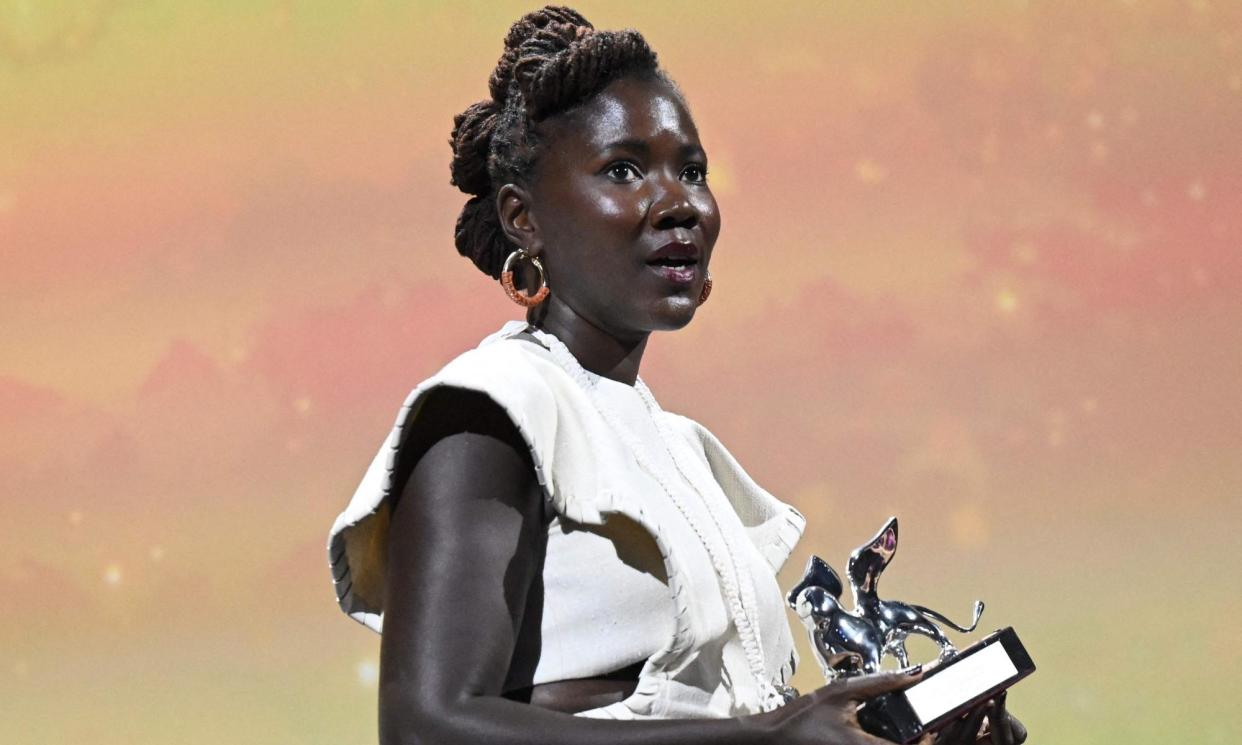Film-maker warns against ‘rampant racism’ in France as election approaches

The award-winning French film-maker Alice Diop has warned of “rampant racism” in France and launched a collective to mobilise residents of housing estates to vote in the snap election in an attempt to hold back the far right.
“For people like me it’s life or death,” said the acclaimed director, as Marine Le Pen’s far-right anti-immigration National Rally (RN) is forecast by pollsters to take the largest number of seats in the French parliament on 7 July and is seeking an absolute majority to form a government.
Diop won top prizes at the Venice film festival for her haunting take on a courtroom drama, Saint Omer, and in 2022 became the first black woman film-maker chosen to represent France for the foreign-film Oscar nominations. She is considered one of France’s foremost documentary makers and feature directors.
In an interview with the French daily Libération, she spoke of feeling sick with fear and anger and of being unable to sleep since Emmanuel Macron called the snap parliamentary election after his centrists were trounced by the far right in the European elections earlier this month.
She said the wider political debate was failing to address a crucial issue: the “rampant racism” in France.
“There’s an elephant in the room and no one seems to see it,” Diop said. “The question of racism is not being clearly asked. I hear different analysis of the motivation of the vote for the Front National [now renamed National Rally], there are lots of things being said, and which I can share, about the complexity of this vote. But what is the common denominator of all these people? It’s racism, it’s a vision of the world, a will to return to a certain idea of France, a fantasy past where I would be perceived as a foreigner, an enemy.”
Diop said: “Everyone should ask themselves where they stand on the issue of racism. It’s not enough to say the National Rally is a xenophobic party. What is a xenophobic party?”
Diop grew up on an estate in the Paris banlieue and her early films documented the nuances of the lives of residents in the outskirts of the capital.
This week she founded a collective called “We vote”, saying it was urgent to mobilise voters who had previously abstained.
She said she addressed racism in her films and experienced it in daily life. “When you are a black woman in France, your whole life is shaped by how to react to the racist microagressions that you are likely to experience in every milieu: in intimate, social and professional interactions. There is no space where you are not obliged to find strategies to resist the box people want to put you in.”
Diop said racism in France was not being adequately discussed in the election campaign because it was so pervasive in society that it was going unspoken. She said there was an “invisibility” of what she called “the deeply racist character” of the National Rally and “the effects on the people who would be victims”.
Diop added: “I think that it suits everyone to not see the elephant in the room. The racism is so widespread, so shared, in a hidden or unthinking way, that it’s as if it has disappeared. And yet it’s the central issue.”
Karim Rissouli, who hosts one of France’s foremost political talkshows on public TV, published a racist letter that he had received at his home this week.
Marine Tondelier, head of the Green party, which is part of the left’s New Popular Front alliance, wrote on X that since the snap election was called racism was being expressed more freely in France. “Impunity seems to prevail as if the far right was already in power,” she said.
Le Pen, asked “why are you racist?” in a BFMTV interview last month, replied: “I am absolutely not racist”. She added: “The RN suggests differentiating people, not on their origins or their skin colour but on their belonging or not belonging to the nation. We think that is the only discrimination that is legal and moral. The fact of having French nationality should give you additional rights compared to those who don’t have French nationality. That’s the only difference we want to make in our project. Never have there been racist proposals or measures in our project.”
Historians and researchers on the French far right have said that the party’s essential doctrine of “national priority” for French people to be prioritised over non-nationals for jobs, housing and welfare assistance was understood by voters in ethnic and racial terms, even if the party did not state this openly.
The sociologist Félicien Faury recently published Ordinary Voters, an in-depth study of the reasons behind a rapidly normalising far-right vote. “There are always two main motivations,” he said. “First is the question of the cost of living, and more broadly, economic security. Then there is the question of a rejection of immigrants and immigration. And broader than that is a rejection of, and hostility towards, racial minorities.”


